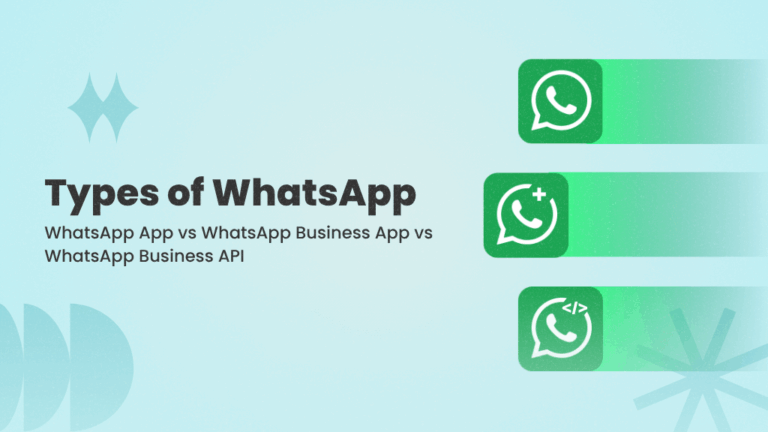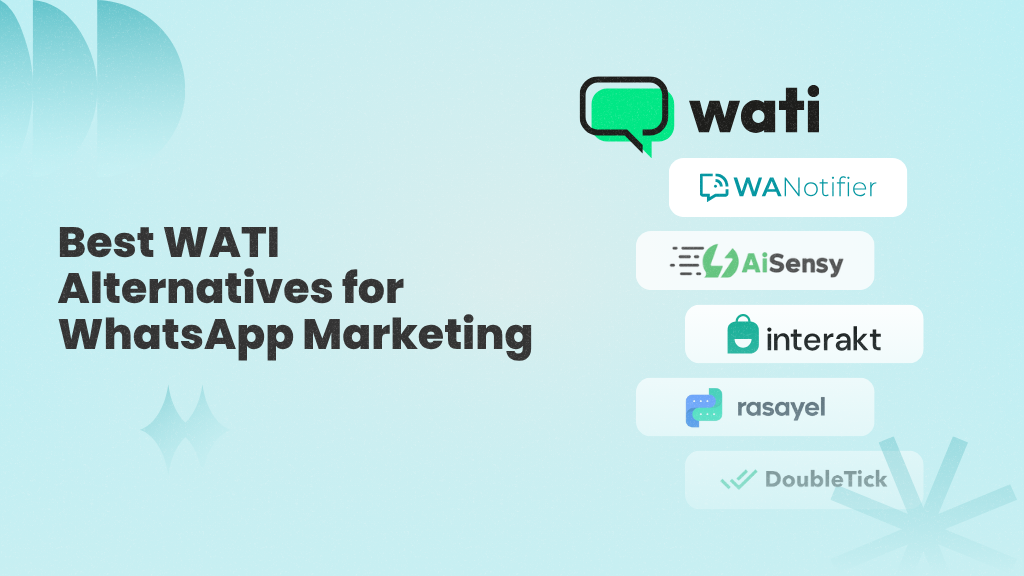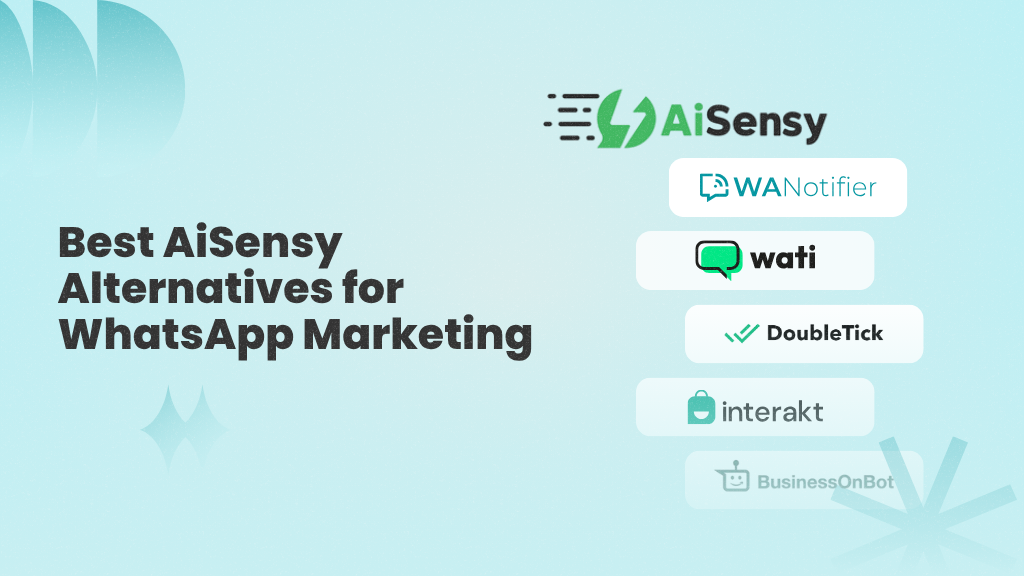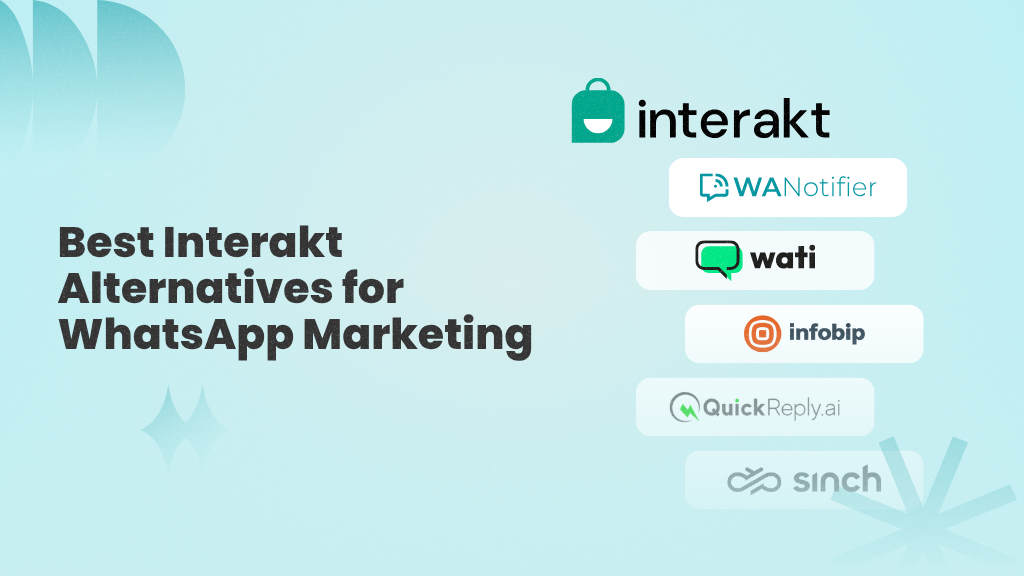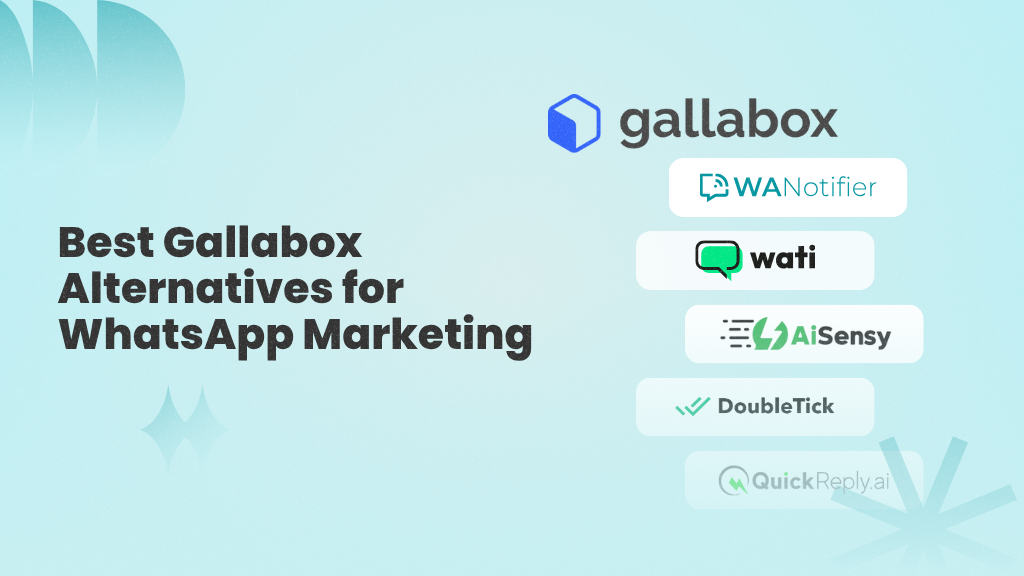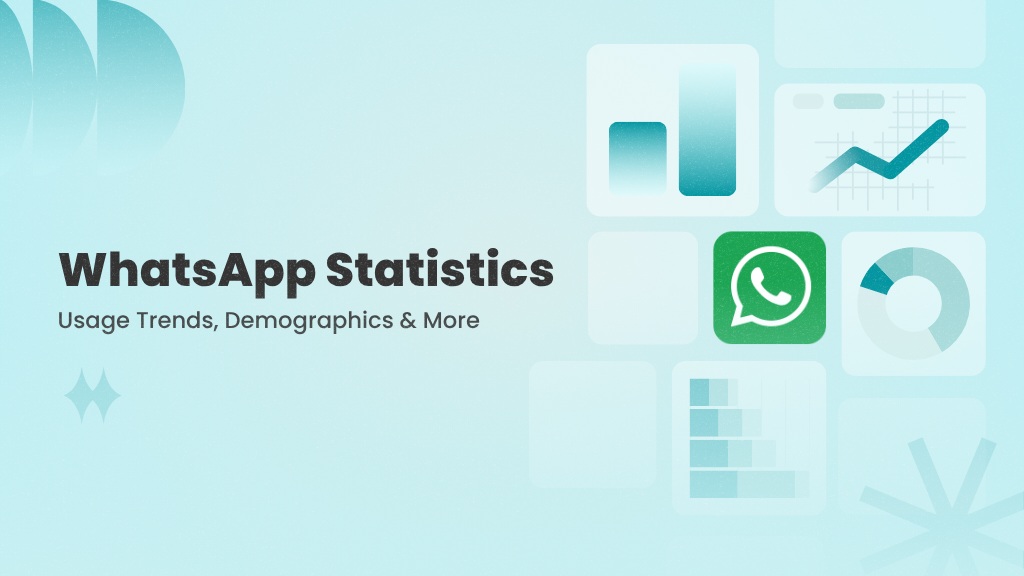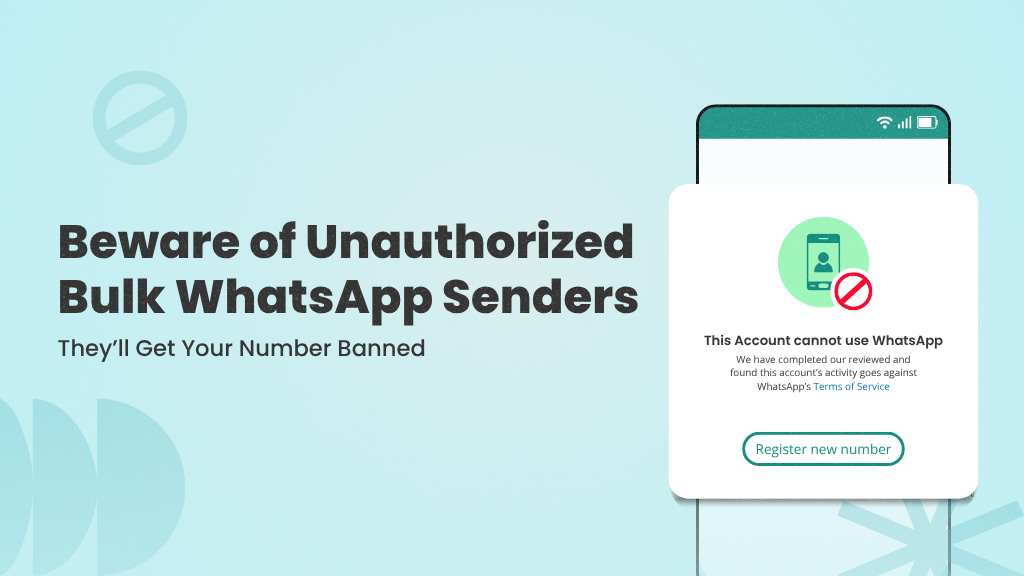We all must have heard of WhatsApp, the most popular messaging app in the world with over 3 billion active users. If you are a WhatsApp user yourself you probably know the impact WhatsApp has on our everyday lives.
We use WhatsApp to connect with our friends and family no matter where we are, we also use WhatsApp to interact with our colleagues at work and some of us receive information from our colleges and universities via WhatsApp while others use it to engage with potential customers or clients.
WhatsApp is a messaging platform that has truly revolutionized the messaging and social media world. Constantly improving and adapting to the needs and requirements of users, WhatsApp has emerged as the most-used messaging platform in the world and the 2nd most downloaded app in the Google Play Store.
WhatsApp is the third most downloaded app ever after Facebook and YouTube. In this article, we will take a look at the history of WhatsApp and the different types of WhatsApp that are available that assist us in performing a variety of functions.
The Story of WhatsApp
Have you ever wondered how WhatsApp, the messaging app that took the world by storm came to be and how it has evolved into what it is today? WhatsApp has become so well known today that it has become synonymous with messaging with people saying “WhatsApp me” instead of “Message me” to other people. Let us dive in and take a look into the fascinating history of how the world’s greatest messaging platform became what it is today.
WhatsApp was founded by Brian Acton and Jan Koum in the month of February 2009 in California, United States. Acton and Koum were former employees at Yahoo!
Acton and Koum quit their jobs at Yahoo to travel across the world and traveling can be draining on the wallet. When they realized this they applied for a job at Facebook only to get rejected.
This is when they came up with the idea of WhatsApp and incorporated WhatsApp Inc on February 24th 2009.
Acton and Koum were helped by another person known as Alex Fishman who introduced the duo to an iOS developer named Igor Solomennikov whom they found on RentACoder.com.
The initial seed funding for WhatsApp was $250,000 which came from Yahoo! employees who were the former colleagues of Brian Acton.
Did you know? At a point in time, WhatsApp wasn’t free to use as it is today. During its initial days WhatsApp charged users $0.99 to use the platform and later on it was made free.
Later in 2011, Jim Goetz, a partner of Sequoia Capital invested 8 million dollars for 15% of the firm becoming a strategic advisor.
In 2013 after WhatsApp rose to 200 million users the company required additional funds. They approached Sequoia Capital once again for a second round of funding securing another $50 million valuing the startup at $1.5 billion dollars.
In 2014, WhatsApp was acquired by Facebook for a whopping $19.6 billion! This was one of the largest acquisitions ever in tech history.
In 2017, Brian Acton decided to leave the company three years after its acquisition by Facebook to work on his non-profit organization called Signal. Jan Koum followed the same path after disputes with Facebook over data privacy and WhatsApp’s business model.
In 2018, WhatsApp launched the WhatsApp Business app and the WhatsApp Business Platform also known as WhatsApp API due to popular demand as its first way to make money. Since then till today WhatsApp has been serving customers across the world through its messaging platform as well as WhatsApp Business and WhatsApp Business API.
Checkout more interesting statistics about WhatsApp.
Let us individually examine each of them along with their advantages and disadvantages to better understand what each one has to offer to its users.
WhatsApp Mobile App
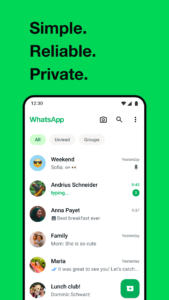
WhatsApp Messenger is the standard free app that most people are aware of and use. WhatsApp Messenger is primarily intended to communicate with friends, family and colleagues while ensuring top-notch privacy via end-to-end encryption.
WhatsApp has developed several new features in recent times. Some of them include WhatsApp channels and WhatsApp pay in countries like India and Brazil. The latest update enables users to chat with Meta’s own AI assistant.
WhatsApp can have its own pitfalls even though we are blinded by its benefits. Let us take a closer look at the pros and cons of using WhatsApp Messenger.
Pros
- End-to-end encryption: WhatsApp ensures your messages, calls and media files such as images, videos and documents are end-to-end encrypted which simply means only you and the person who you send them to can see or view them therefore ensuring privacy and security.
- Free of cost: WhatsApp provides access to free messaging to its users not charging a single penny for sending messages, media files or making calls.
- Video and voice calls: WhatsApp enables users to make voice calls as well as video calls which can prove to be useful when you want to speak to your loved ones or have professional meetings.
- Cross-platform availability: WhatsApp is available to download on Android and iOS and can even be accessed through web browsers making the platform available to everyone and accessible from different devices.
- User-friendliness: WhatsApp has a simple, plain and user-friendly interface making it easier for users of all ages to navigate the platform.
- Group chats and broadcasts: WhatsApp empowers users to communicate with multiple people at once through WhatsApp groups and broadcast lists. A WhatsApp group can have 1024 members while a broadcast list can have up to 256 members.
- File sharing and multimedia support: WhatsApp allows you to share files with up to 2GB of storage space. WhatsApp also allows you to send images, videos, GIFs etc.
- Minimal data requirement: You just require your phone number to get into WhatsApp.
Cons
- Privacy concerns: Although WhatsApp assures end-to-end encryption there are still concerns over its data-sharing policies with its parent company Meta.
- Data requirement: Unlike regular calls or SMS messages one needs to have data in order to use WhatsApp which might be slightly inconvenient.
- Scams and spams: Despite the fact that WhatsApp provides maximum security and WhatsApp officials constantly monitor and regulate the app in order to keep it safe there are still fraudulent messages and spammers out there which you need to be careful of. You can avoid them by blocking their numbers and reporting them to ensure the safety of the app.
- Backup issues: WhatsApp backups are stored on cloud services like Google or iCloud so efforts need to be taken to prevent security breaches.
- Limited customization: Unlike a few other chatting apps WhatsApp has fewer customization options and chat backgrounds.
- Storage consumption: WhatsApp can occupy significant storage space on your device due to media downloads and backups.
WhatsApp can still be the best possible messaging app you can get your hands on if you educate yourself, avoid fraudulent chats and use the app wisely.
WhatsApp Business Mobile App
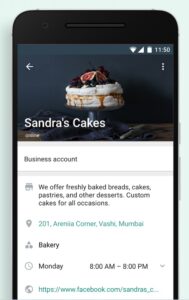
WhatsApp Business was launched in 2018 to support small and medium-sized businesses to better interact with their customers. WhatsApp Business offers additional facilities that can be taken advantage of in order to improve one’s business.
Some of these features include an exclusive business profile where you can display information and credentials regarding your business, automated messaging and a product catalog, all for completely free.
WhatsApp Business was created to capitalize upon the 2 billion already existing users during its release and to help businesses enhance customer engagement, have global reach and foster trust and credence with their customers all while being free of charge.
Pros
- Cost-effective: The total charges for using WhatsApp Business are zero! You heard it right – zero. This makes the platform attractive to small businesses.
- Business profiles: By using WhatsApp Business, businesses can get access to a business profile differentiating it from regular profiles. This profile can be used to display essential information about the business thereby increasing credibility.
- Automated messages: WhatsApp Business enables businesses to send certain automated messages such as greeting messages and away messages to keep customers engaged even when they are not online.
- Analytics tools: WhatsApp Business provides analytics tools that can be used to track how many messages are sent and organizational tools to track customers, orders, complaints and inquiries.
- Global reach: With just a WhatsApp Business profile you get access to customers across the world without additional costs for international messaging.
- Direct communication: WhatsApp Business serves as a channel to directly communicate with your customers. This helps businesses and business owners build better relationships with their customers by sending personalized messages and tailored product offers to them.
Cons
- Limited features: WhatsApp Business although free has its own limitations. It does not provide many features required to run a full-fledged business. It lacks several advanced sales and service functionalities.
- Broadcast limitations: WhatsApp business has a cap of 256 members per broadcast list. This can be an obstacle if a business has a larger customer base or if there is a need to run a bigger marketing campaign.
- Limited collaboration: Team collaboration can be a disaster with WhatsApp Business because all employees use the same account making it difficult to figure out which employees sent which responses thereby creating confusion.
- Limited Devices: WhatsApp Business can only be accessed by five devices and this can be a hindrance to companies with many employees.
- Not entirely GDPR compliant: WhatsApp Business automatically reads all saved contacts and their phone numbers. This can be avoided by using WhatsApp API. The largest drawback of WhatsApp Business is storing chats for regulatory compliance and the data protection issues that may arise when using it.
WhatsApp Business is ideal for small-sized businesses with a few employees. Larger companies with a significant number of employees require additional advanced features that come along with using the WhatsApp Business API.
WhatsApp Business API
WhatsApp Business API was launched by WhatsApp in 2018 with the goal of serving larger companies looking to use WhatsApp to interact with their customers at a huge scale. Unlike WhatsApp Business, WhatsApp API has charges depending on the number of messages sent.
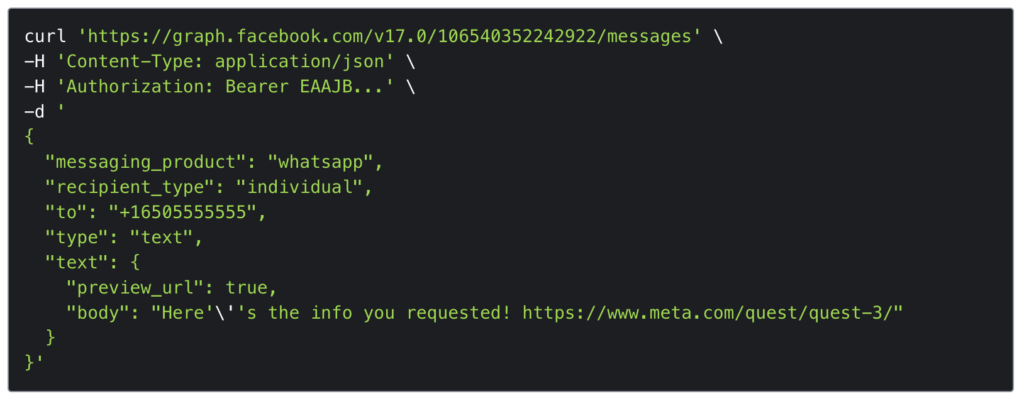
Compared to the standard WhatsApp Business app, WhatsApp API gives businesses access to advanced and sophisticated features. Some of them include the ability to send automated messages in bulk, chatbots, detailed analytics and reports.
WhatsApp Business API has greatly restructured the way businesses operate and is used by thousands of businesses to dramatically increase revenue and customer engagement.
Pros
- Increased visibility: WhatsApp Business API provides companies access to a wider audience with whom they can communicate directly. WhatsApp API also provides access to swift and personalized messaging increasing the chances of making a conversion. Having access to WhatsApp API also gives your business the verified green tick making it feel more reliable and trustworthy to customers.
- Central WhatsApp inbox: With WhatsApp API each employee or team member can get access to an individual employee account. Unlike WhatsApp Business you can now see which messages employees replied to in this central inbox.
- Customization and integration: WhatsApp API is highly customizable to suit business needs and integrates seamlessly with other third-party CRMs and software.
- Automated messaging: WhatsApp API allows you to send automated messages to a large number of people provided they have opted in to receive messages from you. You can schedule these messages to be sent whenever you want as well.
- AI-powered chatbots: With WhatsApp API you can leverage the power of chatbots to deal with customers whenever you are away.
- Multi-device access: WhatsApp API allows access from an unlimited number of devices as opposed to the WhatsApp Business app which only gives access to five devices.
Cons
- Long approval process: To get access to WhatsApp Business API one needs to apply through the official Meta Developers Portal and the approval process can be long and arduous potentially taking weeks to set up.
- Lack of front-end interface: WhatsApp API does not come with a built-in interface for companies to operate on. To access WhatsApp API companies need to choose a third-party provider. Check out WANotifier, the all-in-one WhatsApp marketing software designed to help you get the most out of WhatsApp Business API.
- Cost: WhatsApp Business API comes with a nominal charge for every message sent. However, depending on the type of business you have, WhatsApp API can prove to be more harmful than beneficial.
WhatsApp Business API is better suited for medium and large-sized businesses or any business with over 5 employees.
WhatsApp vs WhatsApp Business vs WhatsApp API
Let us take a comparative look at the three versions of WhatsApp and how they can assist you in further improving your revenue and sales while building better relationships with your customers.
| Features | WhatsApp Messenger | WhatsApp Business | WhatsApp API |
| Business Profile | No | Yes | Yes |
| Price | Free | Free | Paid |
| Meta verified profile | No | Yes | Yes |
| Number of users | 1 | 5 | Unlimited |
| Catalog | No | Yes | Yes |
| Automated messages | No | Yes (Limited) | Yes |
| Broadcast lists | Yes (256 contacts) | Yes (256 contacts) | Yes (unlimited) |
| Chatbots | No | No | Yes |
| Third-party integrations | No | No | Yes |
| Quick replies and CTA buttons | No | No | Yes |
FAQs
What is the difference between WhatsApp Business and WhatsApp Business API?
The principal difference between WhatsApp Business and WhatsApp API is that WhatsApp Business is a free mobile app designed to help improve small-scale businesses whereas WhatsApp API is a programmatic API created to assist medium and large-scale businesses to do WhatsApp marketing.
Is it better to use WhatsApp or WhatsApp Business?
Both of them have their own unique benefits however WhatsApp Business gives you all the features of WhatsApp along with additional functionalities and tools. Some additional features include a verified business profile, the ability to send automated messages, analytics and message templates.
How many users can use WhatsApp Business API?
WhatsApp Business API can be used by an unlimited number of employees or team members, unlike WhatsApp Business which can only allow access to up to 5 members.
Is WhatsApp API free?
WhatsApp API is not free to use but has minimal charges per message you send. WhatsApp only charges you for the number of messages you send so this price is entirely dependent on the size of your company and the number of customers you have.
Is WhatsApp Business free or paid?
WhatsApp Business is free to use and is ideal for small businesses but it does not provide advanced features that are available only through WhatsApp API such as chatbots, detailed analytics, bulk and automated messaging and an intuitive WhatsApp inbox.
Conclusion
So there they are, each type of WhatsApp has its own advantages and disadvantages which need to be considered before deciding to use them. WhatsApp API is the most versatile and beneficial form of WhatsApp providing businesses with the most superior features and tools that are needed to take your business to the next level. Anyhow, you need to carefully analyze which type of WhatsApp is the most compatible with your business necessities prior to making your concluding choice.

